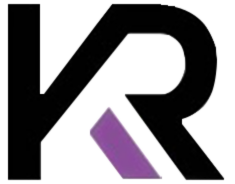
The Revenue Cycle is a complicated web of interconnected operations that hospitals, medical offices, and healthcare systems use to track and collect revenues for the services they provide to their patients. Some of these services include, claims submission, insurance verification, medical coding, and payment posting. Inefficiency and negligence in these processes might result in revenue leakage, which can cost thousands of dollars if not identified. To prevent revenue leakage in medical billing, here are five solutions that can help!
Incomplete or Unbilled Procedures
Incorrect coding leads to payment issues and poor patient care. Physicians must ensure that all billable services and minor procedures are not left undocumented. Educating physicians on billable operations reduces the number of unbilled and incomplete procedures while also increasing revenue. A skilled medical coder can usually detect revenue leakage owing to unbilled procedures.
Incomplete, Inaccurate, or Unbilled Claims
Most income is lost due to incomplete, inaccurate, or unbilled claims. False and exaggerated assertions might harm the company’s reputation and performance. To detect these claims, you should compare reports of patient appointments, the procedures performed, and the claims submitted.
Avoid Denials Related to Credentialing
Healthcare businesses, from tiny private practices to huge health systems, must negotiate the ever-changing standards and regulations regarding provider credentialing, payer enrollment, and privileging. These functions are required to run a successful and profitable practice while still providing excellent patient care. Factors like a payer merger, a delayed re-credentialing letter, payer policies, or revisions may have influenced the status of providers’ participation in particular plans, so keep an eye out for them. Practices should be aware that not knowing if a physician participates in specific health plans might lead to denials.
Credentialing should be done by a professional team that is familiar with the subtleties of re-credentialing and payer-specific credentialing standards and can assist you in reducing denials. Denials can be considerably reduced by outsourcing your credentialing process.
Managing Patient Balance
Patient balance collection necessitates not only organizational support and excellent methods but also standard regulations that the medical billing service provider must follow. To secure optimum reimbursements, the organization must develop a seamless patient balance management procedure that includes electronic payment options, timely reminder calls or texts to patients, and flexible payment plans.
Underpayments and Fee Schedule Problems
Underpayments might go unreported and have long-term consequences for your business. Knowing how much your services cost is one of the most lucrative sources of revenue. Underpayments can be prevented by carefully preparing and modifying your fee schedule following the requirements of the various insurance companies. Seek professional help in determining your fee schedules. These concerns with fee schedules can be rectified by revising your schedule once a month. This allows your practice to pinpoint the areas where you’re being underpaid.
About KR Billing Solutions
If you are looking for a reliable Revenue Cycle Management company, look no further. At KR Billing Solutions, we want to minimize the stress of the billing process for you while helping you boost your practice’s revenue. From Claim Scrubbing & Submission to Patient Billing, we will handle all your billing needs. To learn more, contact us today!

The Revenue Cycle is a complicated web of interconnected operations that hospitals, medical offices, and healthcare systems use to track and collect revenues for the services they provide to their patients. Some of these services include, claims submission, insurance verification, medical coding, and payment posting. Inefficiency and negligence in these processes might result in revenue leakage, which can cost thousands of dollars if not identified. To prevent revenue leakage in medical billing, here are five solutions that can help!
Incomplete or Unbilled Procedures
Incorrect coding leads to payment issues and poor patient care. Physicians must ensure that all billable services and minor procedures are not left undocumented. Educating physicians on billable operations reduces the number of unbilled and incomplete procedures while also increasing revenue. A skilled medical coder can usually detect revenue leakage owing to unbilled procedures.
Incomplete, Inaccurate, or Unbilled Claims
Most income is lost due to incomplete, inaccurate, or unbilled claims. False and exaggerated assertions might harm the company’s reputation and performance. To detect these claims, you should compare reports of patient appointments, the procedures performed, and the claims submitted.
Avoid Denials Related to Credentialing
Healthcare businesses, from tiny private practices to huge health systems, must negotiate the ever-changing standards and regulations regarding provider credentialing, payer enrollment, and privileging. These functions are required to run a successful and profitable practice while still providing excellent patient care. Factors like a payer merger, a delayed re-credentialing letter, payer policies, or revisions may have influenced the status of providers’ participation in particular plans, so keep an eye out for them. Practices should be aware that not knowing if a physician participates in specific health plans might lead to denials.
Credentialing should be done by a professional team that is familiar with the subtleties of re-credentialing and payer-specific credentialing standards and can assist you in reducing denials. Denials can be considerably reduced by outsourcing your credentialing process.
Managing Patient Balance
Patient balance collection necessitates not only organizational support and excellent methods but also standard regulations that the medical billing service provider must follow. To secure optimum reimbursements, the organization must develop a seamless patient balance management procedure that includes electronic payment options, timely reminder calls or texts to patients, and flexible payment plans.
Underpayments and Fee Schedule Problems
Underpayments might go unreported and have long-term consequences for your business. Knowing how much your services cost is one of the most lucrative sources of revenue. Underpayments can be prevented by carefully preparing and modifying your fee schedule following the requirements of the various insurance companies. Seek professional help in determining your fee schedules. These concerns with fee schedules can be rectified by revising your schedule once a month. This allows your practice to pinpoint the areas where you’re being underpaid.
About KR Billing Solutions
If you are looking for a reliable Revenue Cycle Management company, look no further. At KR Billing Solutions, we want to minimize the stress of the billing process for you while helping you boost your practice’s revenue. From Claim Scrubbing & Submission to Patient Billing, we will handle all your billing needs. To learn more, contact us today!




Recent Comments